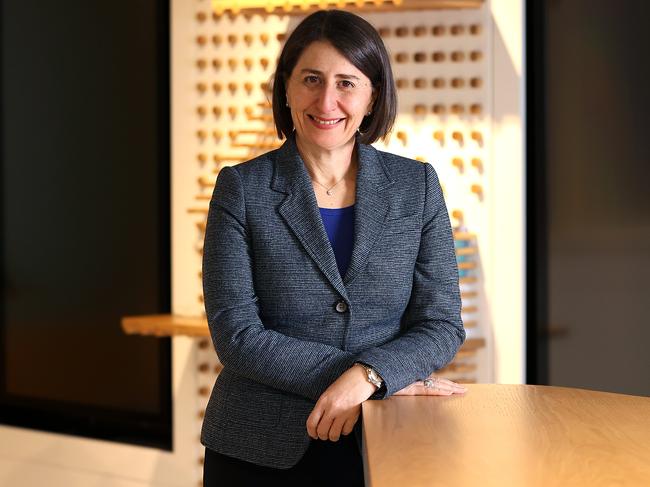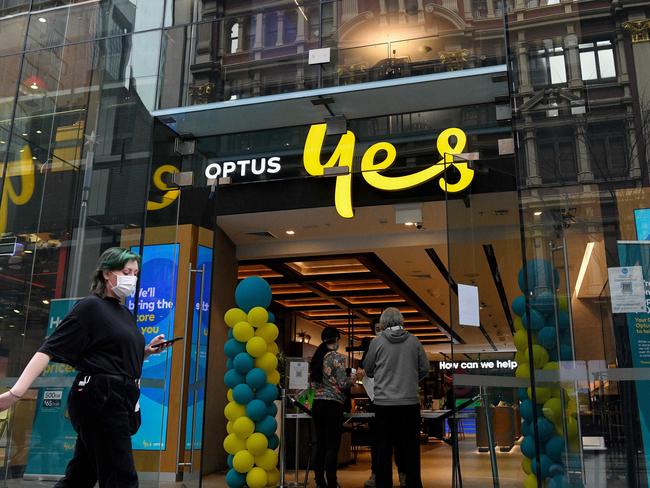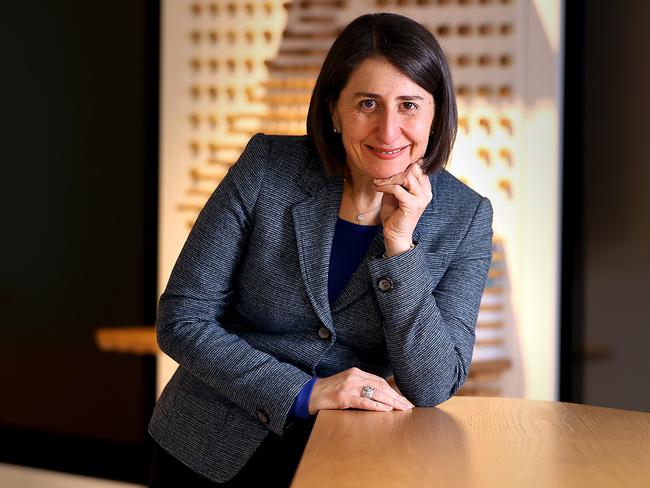The reinvention of former NSW premier Gladys Berejiklian
The former NSW premier does not want to talk about politics – or the pandemic. Now an Optus executive, she hits out at Telstra’s plans to share its network with rival TPG.
It's the first question everyone wants to ask Gladys Berejiklian – will she make a long-speculated return to politics? The ex-NSW premier does not want to go there.
“I’m enjoying my role mentally and have not given anything else a second thought,” she tells The Australian.
There is something Berejiklian, now an executive at Optus, does want to talk about. She says the country’s second-largest telco will review its investment in regional Australia if the competition regulator allows a controversial plan to merge Telstra and TPG’s tower network to go ahead.
It’s been four months since Berejiklian joined Optus, and eight since she stepped aside from running the country’s biggest state in the depths of the Covid-19 pandemic and amid allegations of corruption relating to her former lover, the disgraced one-time Wagga Wagga MP Daryl Maguire.
Before the interview, The Australian is warned Berejiklian will not be providing comment on an ongoing Independent Commission Against Corruption investigation – or her thoughts on how the state and federal government should respond to the pandemic.

Her role as managing director of Optus’ enterprise, business and institutional division is vastly different from her life in politics.
“I’m someone that likes to roll up their sleeves, get stuck into something and get the job done.”
But on this transition, “it’s chalk and cheese; you can’t compare. Obviously my previous role was 24/7”.
Her new job has thrust her into the middle of a dispute between Optus and its rival Telstra and TPG. The latter proposes to share Telstra’s 3700 regional towers and give the larger telco access to its low-band mobile spectrum. TPG will pay Telstra up to $1.8bn over 10 years for the access.
That deal – if allowed by the Australian Competition and Consumer Commission – will see the third biggest player TPG leapfrog Optus into second spot.
“We’re extremely concerned that that would be a backward step to an industry which needs more competition,” says Berejiklian.
“It’s called a shared proposal, but in effect, it’s a merger.”

“When you strengthen the position of a dominant incumbent, and disincentivise organisations from making future capital investments, that’s not a good thing. And that has the adverse impact of providing less resilience in the network. “
Berejiklian firmly brushed off suggestions that Optus would pull out of regional Australia if the TPG-Telstra deal went ahead, alluding instead to a paring back of investments.
“We won’t pull out … but if this proposal proceeded, any company that was making a major capital investment would need to look closely at where, and how, they made that,” she says.
TPG responded in scathing terms to Optus’s claim that the deal was a merger, describing their statement as “misleading” and “in breach of the public’s trust”.
“The proposed infrastructure sharing arrangement will bring choice and competition to regional Australia like never before,” a TPG spokesman said.
“Critical stakeholders including the NSW government, continue to promote infrastructure sharing as the future for connecting communities. For Optus to suggest this arrangement is a backward step, demonstrates they are completely disconnected from the needs of the community.”
Optus puts Telstra’s national mobile market share at 51 per cent – and close to 70 per cent in the regions. It believes that if the merger is allowed to proceed, consumers can expect higher prices nationally, lower overall investment in the communications market, lower network and service quality, less choice for regional consumers and less resiliency in the nation’s communications infrastructure.

The ACCC is due to deliver its ruling on the merger in October and it’s perhaps a sign of fear and alarm that Optus has wheeled Berejiklian out to talk on a topic that doesn’t strictly fit within her new business unit.
That wasn’t always part of the plan. It’s believed the company wasn’t planning on a public profile for Berejiklian until ICAC had ruled on whether she had misstepped during her time as premier.
It is clear, however, that her passion on this topic runs high.
“Having multiple players in a competition is better for consumers and it‘s better for business as well,” she says.
“And it forces you to think about, well, what can I do differently? How can I pitch my wares to business customers? And that’s an important position to have for any sector, including telecommunications, which has now been formally designated critical infrastructure.”
Telstra has more than 70 per cent of the regional business market and Berejiklian say the deal just strengthens their dominance. The ex-premier is now responsible for almost 2000 people in her new role and is excited her team recently won the pitch for providing 5G at Melbourne Airport.
“It’s an opportunity to showcase what Optus is capable of, in providing Australia’s second largest gateway with the best technology,” she says.
“We have the fastest 5G network in Australia, and it can offer businesses across the board and it’s a flavour of what’s to come.”
Her unit has also just expanded its deal with the NSW Telco Authority to give it expanded access to Optus’s satellite services through the use of eight additional portable antennas for use during disasters.
While Berejiklian is no longer running NSW she is clearly keeping a close eye on how people in her state are faring and says that cost of living pressures are starting to bite.
“It would be true to say that businesses as well as individuals are really looking at their discretionary spending, it’s more important than ever to provide value for money for what you provided marketplace.”
But what was her view about what should be done differently during the pandemic – now that she’s left politics?
“None that I will share,” she says.






